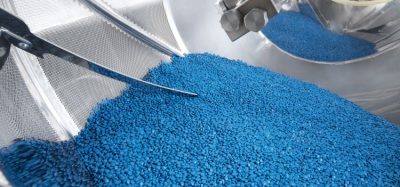Existing drugs show promise as antibiotic agents
Posted: 4 January 2016 | | 1 comment
University of Illinois researchers have found that a number of existing drugs approved for the treatment of various conditions, such as cancer or infertility, show promise as antibiotic agents…


University of Illinois researchers have found that a number of existing drugs approved for the treatment of various conditions, such as cancer or infertility, show promise as antibiotic agents.


The researchers say that because these agents act against multiple targets within the bacteria, it may be harder for bacteria to develop resistance.
“There is obviously a huge need for new antibiotics,” said Illinois chemistry professor Eric Oldfield, who led the study. “We now have bacteria that are totally drug resistant. Bugs are clever: They can adapt and find ways around the things we develop to kill them. So if we attack them at multiple targets, it’s harder for them to make one little change to get around it.”
The researchers were interested in finding compounds that sabotage the bacteria’s energy production line, shutting down cellular processes within the bacterium. These uncouplers are already used to treat parasitic infections. Inspired by clofazimine, a leprosy drug that is now being used to treat tuberculosis, the researchers searched among drugs that are either already available or in development to find uncouplers based on their chemical structures.
“What we found is that a lot of FDA-approved molecules that are in use actually do kill bacteria and also act as uncouplers. We were kind of surprised to find that,” Oldfield said. “What’s even better is that some of those molecules also inhibit enzymes specific to bacteria, or disrupt the membrane or the cell wall.”
Such multitarget drugs could have broader applications against an assortment of infections.
A new approach to antibiotics
One of the most promising uncouplers the study found was vacquinol, a compound being developed to treat glioblastoma, a form of brain cancer. They found that vacquinol inhibits a key enzyme involved in virulence in tuberculosis bacteria, in addition to its uncoupling properties.
The researchers then searched for other compounds with similar structures to vacquinol and found compounds that were potent antibiotics against tuberculosis and Staphylococcus aureus.
“It’s a new approach to antibiotics, targeting enzymes together with bacterial energy production,” Oldfield said.
Next, Oldfield hopes to develop compounds that are metabolised into uncouplers inside the bacterial cell, further reducing cross-reactivity with human cells and making it more difficult for bacteria to develop resistance. For example, certain heartburn drugs are metabolised within the cell into a compound that acts against tuberculosis.






This is not new. Danish researchers headed by dr. med. Jette E. Kristiansen have over the last couple of decades published numerous articles demonstrating and documenting a number of psychopharmacons as “resistance blockers” – so-called “non-antibiotics” many based on phenothiazines e.g. Thioridazine.
Please contact me for further documentation.
Soren Nielsen DVM
E mail